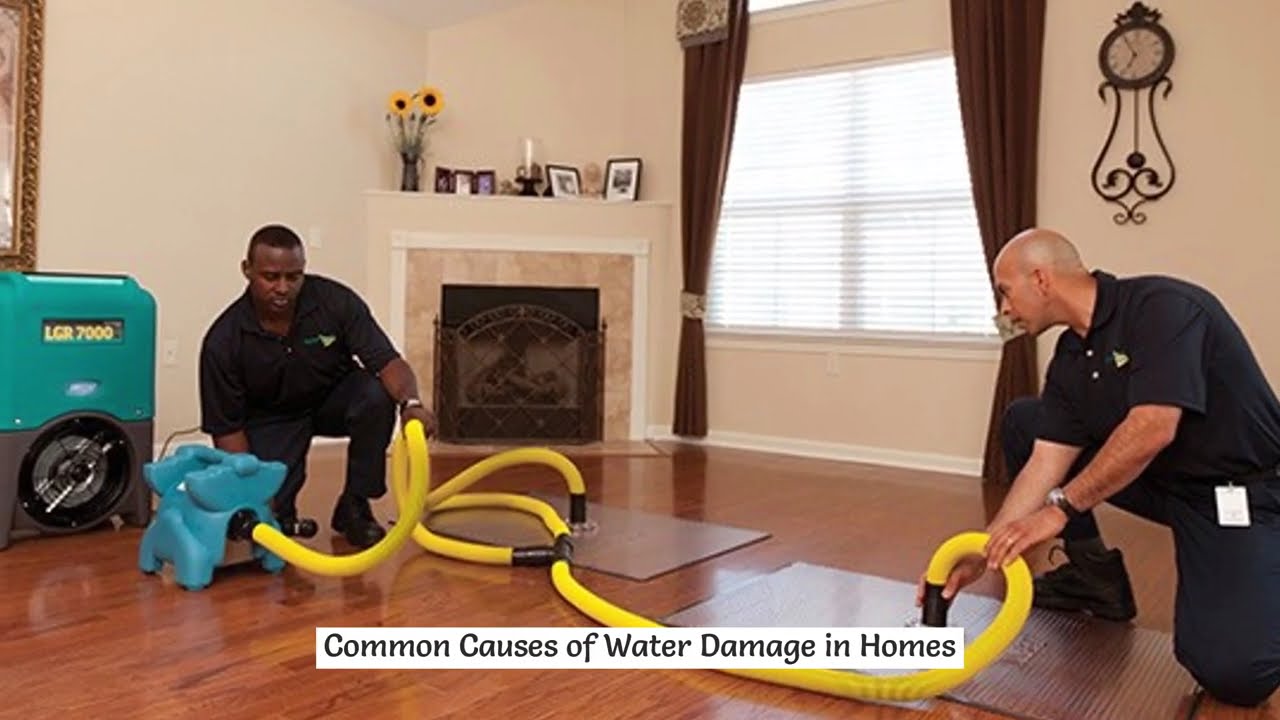 Conclusion
Conclusion
Preventing residential water damage starts with understanding its causes and taking proactive steps to protect your home. From plumbing leaks and roof issues to poor drainage and severe weather, several factors can lead to costly damage. Regular maintenance, timely repairs, and proper inspections can help minimize risks and preserve your home’s integrity.
Common Causes of Residential Water Damage
Understanding the sources of residential water damage is crucial for homeowners. From leaking pipes and malfunctioning appliances to natural disasters and poor home maintenance, several factors can lead to water intrusion. Identifying these causes early can help prevent costly repairs and structural damage.
The Impact of Roof Leaks on Residential Water Damage
A damaged or aging roof can allow water to seep into a home, leading to mold growth, rotting wood, and weakened structural integrity. Regular roof inspections and prompt repairs can help homeowners prevent water damage caused by roof leaks.
Gutter Maintenance: Regular gutter maintenance is crucial to prevent water from overflowing and seeping into your home. Clogged gutters can trap water, which may overflow and pool around your foundation, leading to leaks and potential water damage in your basement or walls. Clean gutters at least twice a year, especially before heavy rains or snowstorms, to ensure proper water flow. Inspect downspouts for blockages and ensure they are securely attached to direct water away from the home.
Downspout Extensions: Downspout extensions are a simple but effective way to direct water away from your foundation. Without extensions, water discharged from gutters may fall too close to the foundation, leading to erosion and potential flooding. Installing downspout extensions that direct water 3-4 feet away from the house ensures that water doesn’t pool near the base, helping to prevent moisture problems and foundation damage in the long term.
Poor Drainage: Poor drainage around a home’s foundation can result in water pooling near the structure, eventually leading to leaks and flooding in basements or crawl spaces. Clogged gutters, downspouts, and improper grading can direct water toward the home, overwhelming the foundation and allowing moisture to enter. To prevent water damage, homeowners should ensure their gutters are clear, extend downspouts away from the foundation, and have their property graded to direct water flow away from the house.
The Role of Proper Drainage in Preventing Residential Water Damage
Poor drainage around a home’s foundation can lead to basement flooding and long-term structural issues. Ensuring proper grading, maintaining gutters, and installing sump pumps are key strategies to prevent water damage caused by inadequate drainage.
Faulty Appliances: Faulty appliances, such as dishwashers, washing machines, water heaters, and refrigerators, can lead to water leaks and flooding if they malfunction. Broken hoses, defective seals, or improper installation can cause significant water damage in the kitchen, laundry room, or basement. Regular maintenance and timely repairs are essential to keeping these appliances functioning properly. Homeowners should also check hoses and connections for signs of wear and replace them as needed to prevent leaks.
Proper Grading: Proper grading around your home’s foundation ensures that water flows away from the structure, preventing pooling around the base. Over time, the ground can shift or settle, causing low spots near the foundation where water collects. Maintaining a gentle slope away from the house is key to guiding water away from the foundation. You may need to regrade the land or add soil to restore a proper slope and protect your home from water intrusion.
Leaking Pipes: Leaking pipes are one of the most common causes of water damage in homes. Over time, pipes can corrode, crack, or become loose, leading to slow leaks that may go unnoticed for weeks or even months. These leaks can cause significant damage to walls, ceilings, and floors, residential service creating ideal conditions for mold growth and structural issues if not repaired promptly. Regular pipe inspections and maintenance can help identify potential problems before they lead to severe damage.
French Drains: French drains are a great solution for managing water around the perimeter of your home. These trench-like systems are filled with gravel or rock and contain a perforated pipe that allows water to be absorbed and redirected away from your foundation. Installing a French drain can effectively reduce excess water buildup and prevent basement flooding, especially in areas prone to water saturation. Regular inspection ensures these drains remain clear and functional during heavy rainfall.
Severe Weather: Severe weather events, such as heavy rains, snowstorms, hurricanes, or floods, can overwhelm drainage systems and cause water to infiltrate homes. Strong winds can also damage roofs, windows, and doors, allowing water to enter. In areas prone to severe weather, homeowners should take extra precautions by reinforcing windows and doors, installing sump pumps, and ensuring proper drainage systems are in place to reduce the risk of water damage during extreme weather events.
How Plumbing Issues Lead to Residential Water Damage
Plumbing failures are one of the leading causes of residential water damage. Burst pipes, clogged drains, and leaking fixtures can introduce excessive moisture into walls, floors, and ceilings. Routine inspections and timely repairs can help homeowners avoid severe water damage caused by plumbing issues.